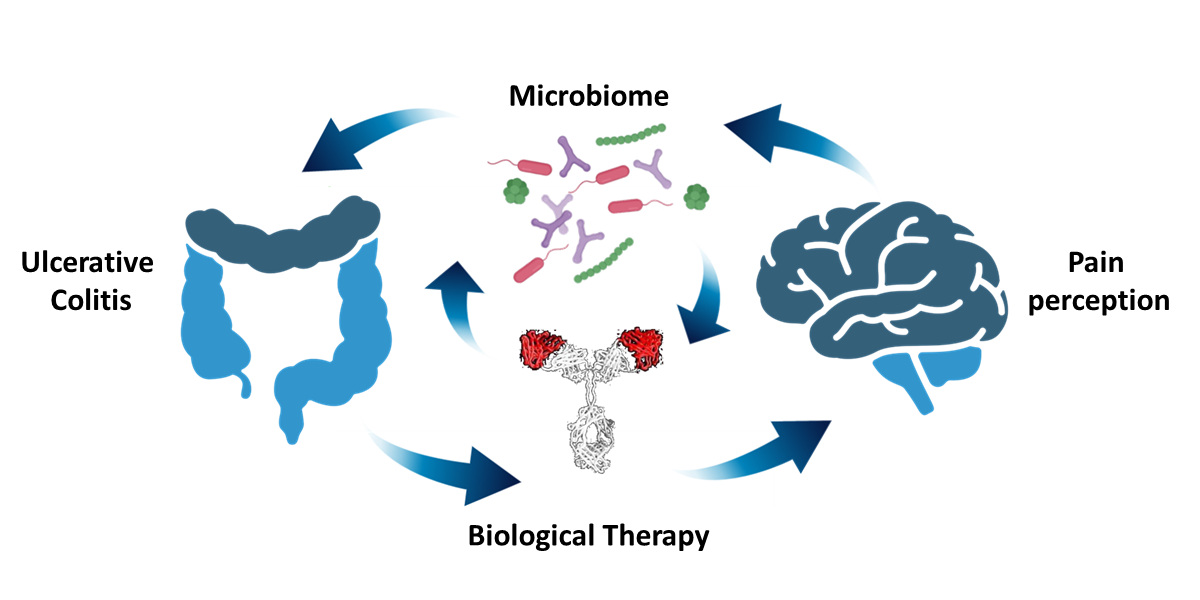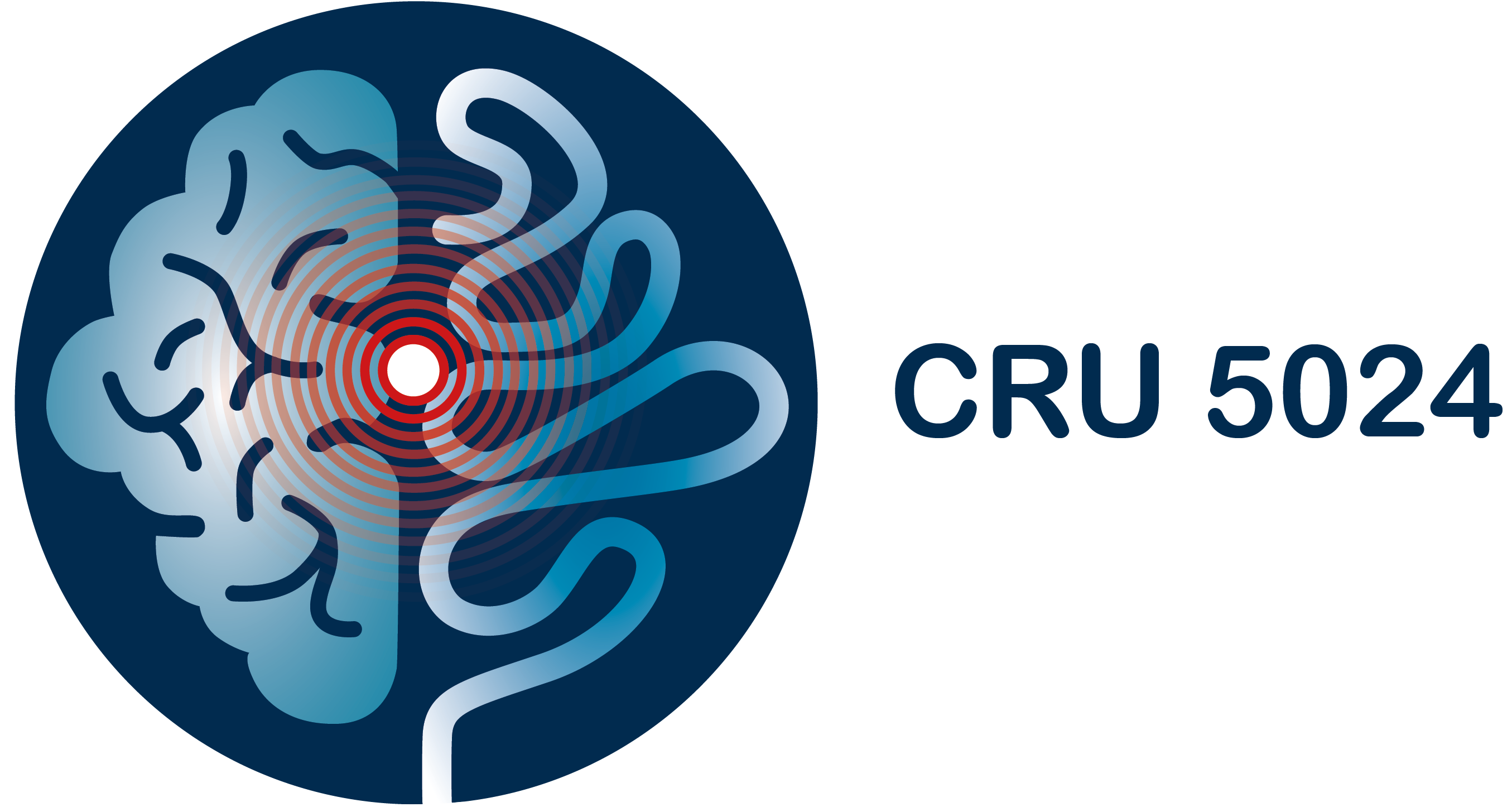Project B04
Interplay between intestinal microbiome and multimodal MRI brain biosignatures for prediction of response to anti-TNF therapy in ulcerative colitis
Project Description
 Ulcerative colitis (UC) is one of the major entities of inflammatory bowel diseases (IBD), causing lifelong morbidity. Apart from diarrhea and rectal bleeding, abdominal pain and ongoing fatigue may represent a great illness burden. Introduction of anti-TNF therapy has made a major impact on the clinical benefit of the patient. Nevertheless, it is only effective in a subgroup of patients and there is still a discrepancy between objective control of inflammation and subjective central perception of symptoms and patient related outcomes, respectively. Previous work from our group demonstrated that functional magnetic resonance imaging (fMRI) was able to visualize a rapid decreased pain perception in the brain of IBD patients responding to anti-TNF antibody therapy. With regard to the gut-brain axis it has been demonstrated, that the microbiome can substantially modulate local and systemic immunological processes, as well as brain function. Our project focuses on microbiome-brain interactions in UC patients under anti-TNF therapy using innovative multimodal MRI (mMRI) for defining functional and structural CNS biosignatures. This will lead to an improved, holistic understanding of the disease pathophysiology along the gutbrain axis and may consequently pave the way for an individualized patient stratification, clinical decision making and objective prediction of treatment response.
Ulcerative colitis (UC) is one of the major entities of inflammatory bowel diseases (IBD), causing lifelong morbidity. Apart from diarrhea and rectal bleeding, abdominal pain and ongoing fatigue may represent a great illness burden. Introduction of anti-TNF therapy has made a major impact on the clinical benefit of the patient. Nevertheless, it is only effective in a subgroup of patients and there is still a discrepancy between objective control of inflammation and subjective central perception of symptoms and patient related outcomes, respectively. Previous work from our group demonstrated that functional magnetic resonance imaging (fMRI) was able to visualize a rapid decreased pain perception in the brain of IBD patients responding to anti-TNF antibody therapy. With regard to the gut-brain axis it has been demonstrated, that the microbiome can substantially modulate local and systemic immunological processes, as well as brain function. Our project focuses on microbiome-brain interactions in UC patients under anti-TNF therapy using innovative multimodal MRI (mMRI) for defining functional and structural CNS biosignatures. This will lead to an improved, holistic understanding of the disease pathophysiology along the gutbrain axis and may consequently pave the way for an individualized patient stratification, clinical decision making and objective prediction of treatment response.
Project Leaders:
Prof. Dr. med. Raja Atreya
Professur für Translationale Immunforschung bei chronisch entzündlichen Darmerkrankungen
Prof. Dr. med. Arnd Dörfler
Leiter des Neuroradiologischen Instituts
MD student:
Associated Members:




